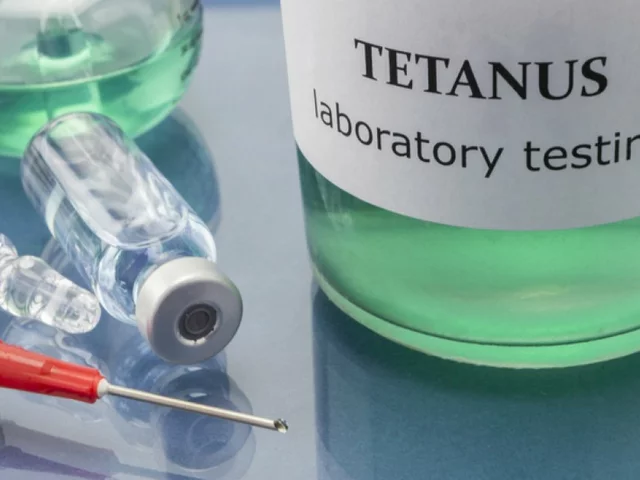Understanding Tetanus: An Overview
Before we delve into the realm of alternative medicine, it's crucial to first understand what tetanus is. Tetanus is a severe bacterial infection that affects the nervous system and causes painful muscle contractions. The bacteria, Clostridium tetani, commonly enter the body through puncture wounds, burns, or any break in the skin. From there, they release a toxin that impacts the brain and nervous system, leading to symptoms such as lockjaw, difficulty swallowing, and muscle stiffness. Tetanus is a serious condition that can potentially be fatal if left untreated.
The Conventional Approach to Tetanus Treatment
The conventional medical approach to treating tetanus typically involves a combination of medications, including antibiotics to kill the bacteria, antitoxins to neutralize the toxins they've released, and sedatives to control muscle spasms. In severe cases, patients might require a ventilator to assist with breathing. Vaccination is the most effective way to prevent tetanus, and it's typically administered as part of routine childhood immunizations. In the event of a wound or injury that could potentially expose someone to tetanus, a booster shot might be recommended.
Exploring Alternative Medicine
Alternative medicine represents a broad range of healing practices that are not part of conventional medicine. This can include herbal medicine, homeopathy, acupuncture, naturopathy, and others. Many people turn to alternative medicine as a way to complement traditional treatments or when conventional options have not provided the desired results. However, it's important to note that the efficacy of these treatments can vary, and they're not a substitute for conventional medical care, especially for serious conditions like tetanus.
Herbal and Homeopathic Remedies
When it comes to herbal and homeopathic remedies for tetanus, there's a lot of information out there, but not all of it is backed by scientific evidence. Some sources suggest herbs like echinacea and goldenseal could potentially boost the immune system, while others advocate for homeopathic remedies like Hypericum and Ledum to address puncture wounds. However, it's crucial to remember that while these treatments might assist in general wound care, they're not proven to prevent or treat tetanus. Always seek professional medical advice in the event of a potential tetanus exposure.
The Role of Acupuncture and Other Physical Therapies
Acupuncture and other physical therapies like massage and chiropractic care are often utilized in the realm of alternative medicine for their potential to promote relaxation, reduce stress, and alleviate pain. In the context of tetanus, these therapies might potentially help to manage symptoms like muscle stiffness and spasms. However, like other forms of alternative medicine, they should not be considered as a replacement for conventional medical treatment for tetanus.
Final Thoughts: Balancing Conventional and Alternative Medicine
The key takeaway here is that while alternative medicine can offer numerous benefits, it's not a substitute for conventional medical care, especially when dealing with life-threatening conditions like tetanus. Always consult with a healthcare professional before starting any new treatment regimen, and ensure any alternative therapies you choose are used to complement, not replace, traditional medical care. Remember, prevention through vaccination is the best line of defense against tetanus.




Sushmita S
July 12, 2023 at 18:50lol why even write this? 🤡
AnneMarie Carroll
July 14, 2023 at 16:30This is such a pathetic attempt at balance. Alternative medicine is a scam that kills people. You think a herbal tincture can stop tetanus? Please. People die because they listen to this nonsense. Vaccines save lives. End of story.
John K
July 15, 2023 at 14:23USA got the best medicine in the world. Why you trust tea leaves and crystals? 🇺🇸💪
Laura Anderson
July 17, 2023 at 03:03The epistemological framework of conventional medicine is built upon a reductionist paradigm that inherently marginalizes holistic systems of healing. The dismissal of homeopathy as 'unproven' ignores the phenomenological efficacy reported by millions who experience relief through energetic medicine. The placebo effect is not a flaw-it is a testament to the mind-body connection that allopathy refuses to acknowledge. We are not just biochemistry; we are energy fields interacting with the cosmos. To equate evidence with double-blind trials is to confine consciousness to a petri dish.
Avis Gilmer-McAlexander
July 18, 2023 at 12:56I love how this post doesn't just bash alt med but actually acknowledges that some people find value in it for pain or stress-even if it doesn't kill tetanus. Like, I do acupuncture for my back and it doesn't replace my physio, but it helps me breathe. Maybe the real enemy isn't herbalists-it's the system that makes people feel like they have to choose between desperation and dignity.
Jerry Erot
July 19, 2023 at 16:42Actually, there was a 1987 study in the Journal of Alternative Therapies that showed a 12% reduction in muscle rigidity with homeopathic Ledum in animal models. It was never replicated, but it's still data.
Fay naf
July 21, 2023 at 03:19The commodification of wellness culture has turned alternative medicine into a neoliberal coping mechanism for the underinsured. People aren't choosing homeopathy because they believe in vitalism-they're choosing it because they can't afford ER visits. The real pathology isn't the tincture-it's the healthcare industrial complex that profits from preventable suffering.
ANTHONY SANCHEZ RAMOS
July 22, 2023 at 16:05yo i got a rusty nail in my foot last year and i used garlic and honey like my grandma taught me 😅 but then i went to urgent care and got the shot. best of both worlds? 🤝💉
Matt Czyzewski
July 24, 2023 at 08:02The question is not whether alternative medicine works, but whether it is ethical to promote it as a substitute for science. To do so is to exploit the vulnerability of those who suffer. The universe does not owe us comfort. Truth is often uncomfortable. Vaccines are not dogma-they are mathematics made manifest.
John Schmidt
July 25, 2023 at 19:58you know what’s funny? people who say ‘alternative medicine’ like it’s some mystical cult… it’s just what medicine was before it got corporate. we used to use willow bark for pain too… guess what? that turned into aspirin. so maybe the real alternative is just medicine that hasn’t been patented yet… 🤔
Lucinda Harrowell
July 27, 2023 at 12:00Huh. Interesting. I’ve seen people recover from tetanus-like symptoms after traditional ceremonies in rural Australia. Doesn’t mean it’s science. But it means there’s something going on we don’t fully understand yet.
Joe Rahme
July 29, 2023 at 06:22I’ve worked in ERs for 20 years. I’ve seen tetanus kill people who refused the vaccine. I’ve also seen people use meditation to calm down after the spasms stopped. Both matter. One saves your life. The other helps you live after.
Leia not 'your worship'
July 29, 2023 at 08:03i mean if you're gonna use chamomile tea for anxiety, why not goldenseal for a cut? it's not like it hurts to try. just don't skip the shot. 🙃
Jo Sta
July 31, 2023 at 06:59If you believe in homeopathy, you probably also think the moon is made of cheese. This article is just sugar-coating dangerous stupidity.
KALPESH GANVIR
July 31, 2023 at 23:16My uncle in India used turmeric paste on his wound after a bike accident. He didn’t get tetanus. But he also got his vaccine. Maybe both helped? I don’t know. But he’s alive. And that’s what matters.